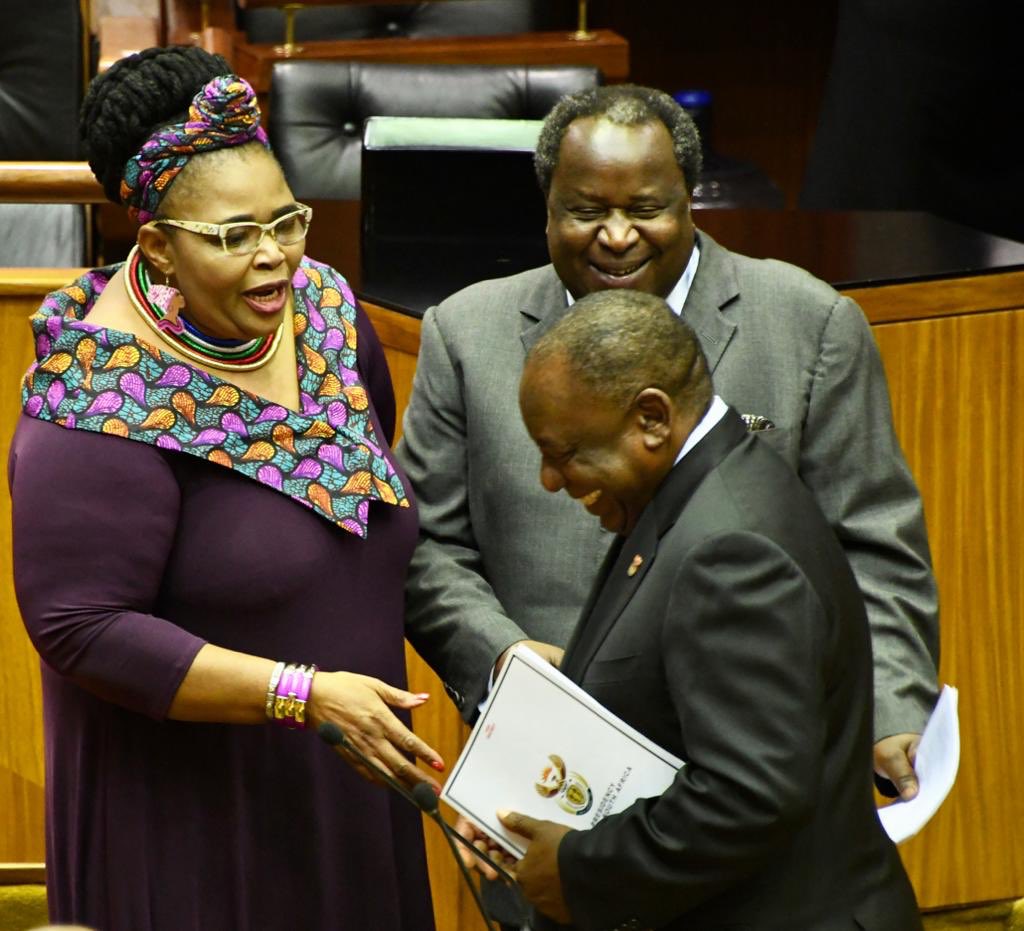Thalia Holmes
Following a promise he made on Twitter in the week preceding the budget speech, Finance Minister Tito Mboweni was socially obliged to announce details about a state bank as he tabled the 2020 budget in parliament.
And history will show he made good on that promise, although the details remain sketchy.
“I am pleased to inform the house,” said Mboweni, “that preferred options for the establishment of a bank are now ready.”
The setup of the envisioned financial services provider will be like that of a retail bank operating on commercial principles, he said.
The state bank will be subject to national banking laws as outlined in the Banks Act. It will also have an “appropriate capital structure” and “performance parameters” on investments and loan impairments.
The announcement follows legislation passed last year allowing state-owned enterprises to apply for banking licenses.
Andrew Duvenage, managing director of NFB Private Wealth Management, said thatquestions arose around how the bank would be funded. “The big question will be how a state bank will be capitalised, given that banks operating on commercial principles have significant capitalisation requirements,” he said.
Incidentally, the minister’s tweet was made in reference to proposals made by opposition party the Economic Freedom Fighters (the EFF). “Long ago, before THEY spoke about a State Bank, I did,” he tweeted.
“And a State Bank will be established as a deposit taking institution.”
Mboweni was referring to the fact that the EFF in 2018 submitted a private member’s bill in Parliament to set up a state-owned bank, along the lines of the now-liquidated VBS Bank.
At the time, the proposal raised concern among existing players in the private banking sector, with the Banking Association of South Africa (Basa) saying that such an entity could pose systemic risk for the banking sector if it were to capture the accounts of public servants.
The association also flagged the possibility of political interference in the bank, making it a possible hotspot for corruption and malfeasance.
Following Wednesday’s speech, chairperson of Basa Cas Coovadia said that he was “still not convinced about the need for a state bank. I think that if we work smartly, we can work with the existing financial sector … and see how we can incentivise them to make dysfunctional markets functional. But we wait and see,” he said in an interview on Business Day TV.
Sovereign Wealth Fund
The Finance Minister also announced an intention to establish a “sovereign wealth fund” as a tool for saving and investment for future generations, something that could contribute to strengthening the fiscal framework, and a counter-cyclical fiscal tool.
But while the minister was unequivocal in his announcement that the fund would be established, the budget detail is less assertive. Instead, it says that the National Treasury is “conducting a feasibility study” for a such a fund, possibly from the proceeds from the allocation of spectrum and the sale of non-core assets to capitalise it.
In addition, “a fiscal rule that saves fiscal surpluses in the fund could help to manage volatile revenues,” said the budget detail.
The fund, he said to applause in parliament, would target a capital amount of R30 billion.
Says Duvenage: “Where this funding will come from remains to be seen although the minister did suggest possible funding sources as the proceeds of spectrum allocation, petroleum, gas or mineral rights royalties, the sale of non-core state assets, future fiscal surpluses and money set aside from future budgets.”
Consolidation
“We will also consolidate the currently fragmented system of national and provincial Development Finance Institutions,” said the minister.
Inside Politics has seen a confidential report presented to the Cabinet Lekgotla in January, in which, among other things, plans to merge the various development finance institutions are unpacked.
The document underscores a decision to merge the National Empowerment Fund (NEF) into the IDC.
This announcement was originally made in 2017. At the time, the IDC said the merger would “promote increased broad-based black economic empowerment with a specific focus on promoting black industrialists.”
The decision was considered to be “in line with government policy to consolidate South Africa’s development finance institutions to provide effective support to emerging and existing black entrepreneurs, and thereby enhancing efficient service delivery,” said the IDC.
The document also indicates an intention to consolidate the Small Enterprise Funding Agency (which provides financial support to small black owned businesses) and the Small Enterprise Development Agency (which provides non-financial support to small businesses).
The document indicates that a decision had been made to “retain” the Development Bank of South Africa. A table outlining criteria for optimising state ownership indicated that an SOE should be retained only when the fiscal sustainability is high and its potential impact to the economy of that SOE is likewise high.



